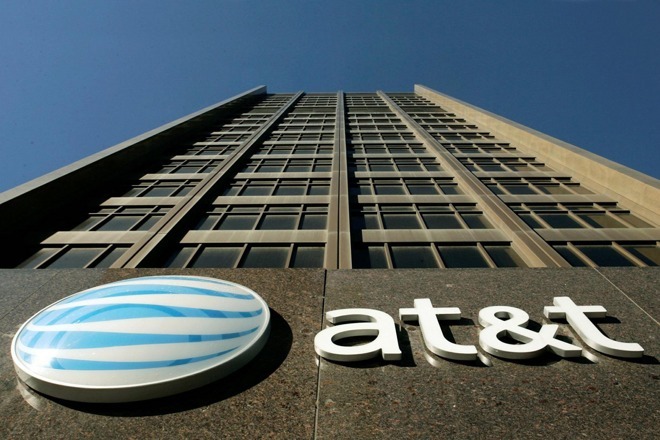While AT&T and Time Warner were said to have previously held informal talks about a potential takeover, those discussions have apparently since turned serious, with a deal said to be now nearing completion.
Citing people familiar with the discussions, The Wall Street Journal reported on Friday that an AT&T acquisition of Time Warner could be announced as soon as this weekend. AT&T is looking to merge its wireless, broadband and satellite TV businesses with Time Warner's massive content empire, including the likes of HBO, TNT, and CNN.
Such a deal is likely to face antitrust scrutiny from the U.S. government, in much the same way that the Department of Justice looked closely and placed restrictions on Comcast's takeover of NBC, approved nearly six years ago.
AT&T attempted to purchase rival carrier T-Mobile in 2011, but that proposed deal was ultimately shot down. The wireless provider has since moved its attention to media and distribution, inking a $50 billion deal to purchase satellite provider DirecTV last year.
AT&T currently has a market cap north of $227 billion, while Time Warner is valued at around $73 billion as of trading on Friday.
An earlier report on Thursday revealed that AT&T had held informal talks with Time Warner after last year's DirecTV acquisition. But while those talks were characterized as at an early stage, the latest round of discussions are said to be more serious.
Sources who spoke with the Journal said that the possible cash-and-stock deal has come together quickly so far, but the fluid discussions could fall through or be delayed.
On the block, if AT&T can raise the capital, is a valuable lineup from premium cable channels marketed by HBO, basic cable asset including Cartoon Network and lucrative sports licenses like NBA basketball. Access to popular content is vital for AT&T as the company prepares to launch an over-the-top streaming app under its DirecTV subsidiary.
 Neil Hughes
Neil Hughes









 Charles Martin
Charles Martin
 Malcolm Owen
Malcolm Owen
 William Gallagher
William Gallagher

 Christine McKee
Christine McKee
 Wesley Hilliard
Wesley Hilliard

 Andrew Orr
Andrew Orr








8 Comments
Before everyone runs to the "Apple should have done this and are stupid for not", please remember:
- Almost all content is up for licensing - it is how content providers make money. As seen in Comcast acquisition of NBC Universal, it lead to specific regulations to that effect
- Apple has no experience, or desire it seems, for large acquisitions that essentially takeover a very large company
- Apple would benefit from increased video streaming services, but it is about bringing new value to the overall platform. Apple customers already have access to HBO Go and Now, etc.
Open up Municipalities on a level playing field for Data, Voice and Digital Content; then I'll be interested in such an asinine merger. Same with Comcast who is now on a 5 year strict probation. Sorry, but w/o those open networks for creative content owners to decide where it can and will distribute their works, this is nothing but a gatekeeper system of corruption and bs.
If it weren't there would have never been a reason for Comcast, ATT or anyone else to try and gobble up the Cable, Satellite and now original content producers/networks who get exclusive license to produce pilots as bore us to death with 30% of each hour filled with useless commercials.
I'll never forget the pitch for Cable in the US: Commercial free!
My effing ass.
Then-dial-up service AOL once bought Time Warner when AOL had a huge market cap and that deal was a disaster. AT&T seems like a much bigger and healthier acquirer than AOL
It would make more sense for the content creation to be divested from the internet service. The problem in the US and Canada is that the major content providers are also the major ISP's, so content licencing is backstopped by the cable/dsl/fibre internet services.
This allows ISP's that do not own content to offer cheaper prices (should they chose to compete instead of collude like they do right now) because they aren't offering content or licencing any. But it's hard to offer a "triple play" package without it. But that's where Netflix, AppleTV and similar services come in.
By moving the services to a "directly subscribed" model, that removes the content licence negotiation out of the way, so you might pay $8/mo to get about 30% of the available content out there, and the rest of the ad-supported content can continue to be subscribed to or watched with ads for free, all without the ISP deciding if they should carry a channel.
To give an example. There is a local news channel here that is owned by one ISP and is only carried by that one ISP, and until that ISP divested their content networks, the other ISP's only carried the OTA channel provided by that ISP, not the 24 hour news channel. If no content was owned by any ISP, then that moves the licencing ball entirely into the consumer's hands. Do they want to pay $25/mo for HBO, instead of paying for $200 in premium packages just to get HBO? I think most people would prefer that direct subscription and to hell with having to subscribe to 10 other channels you'll never watch.
But if I want to, I can watch the 24hr news channel over the internet, at the cost of using bandwidth.